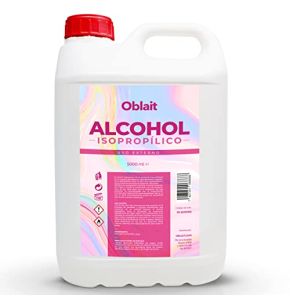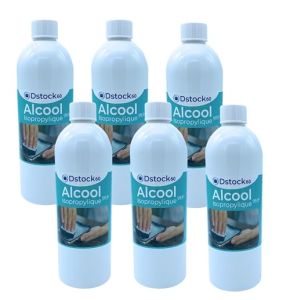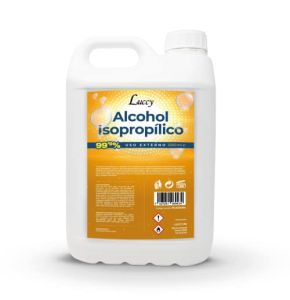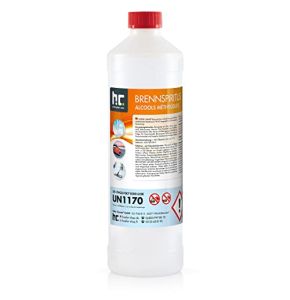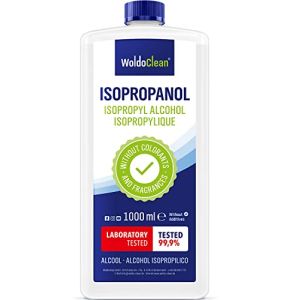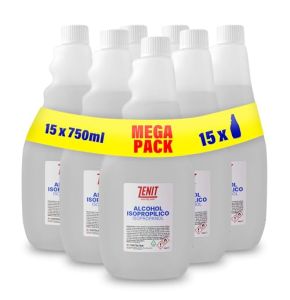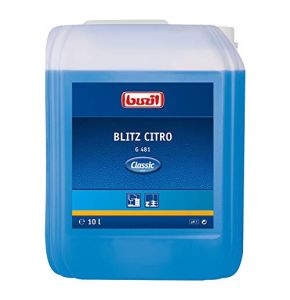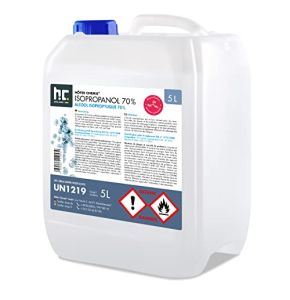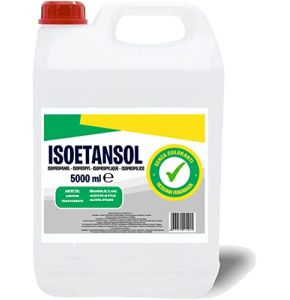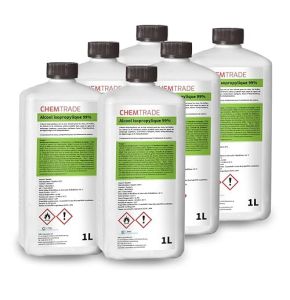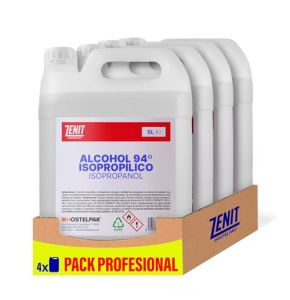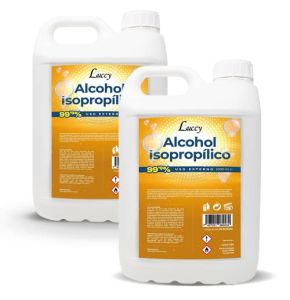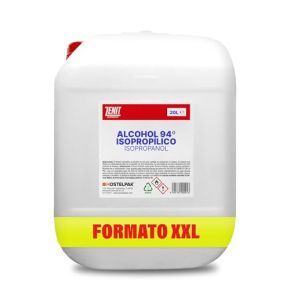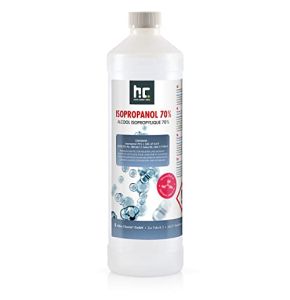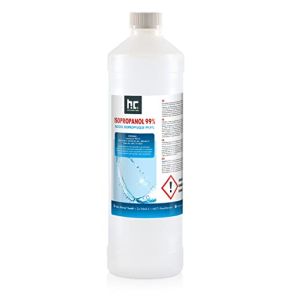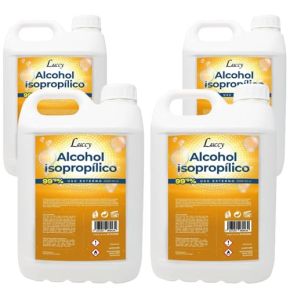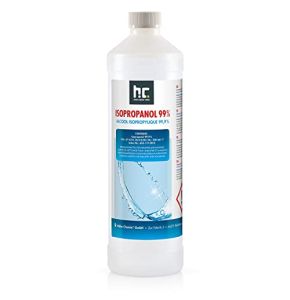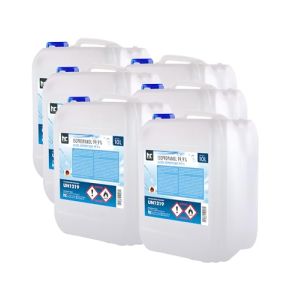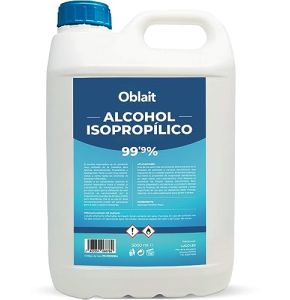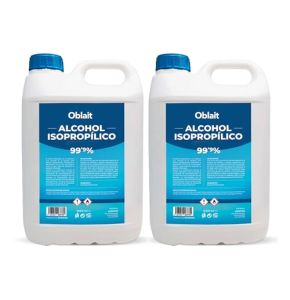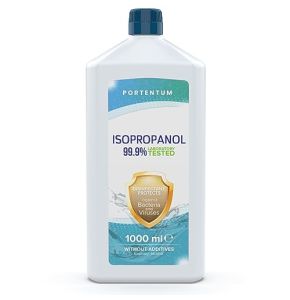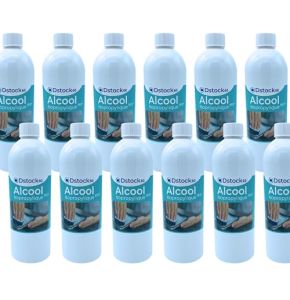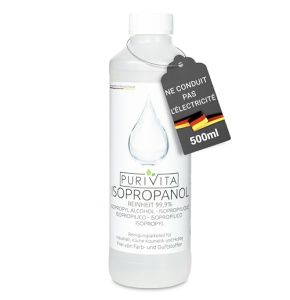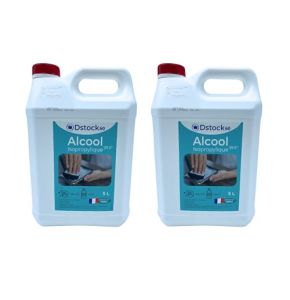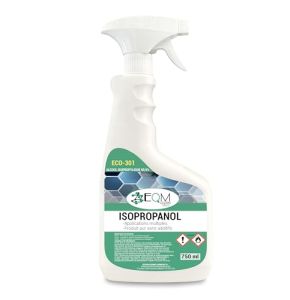Isopropyl Alcohol
18/11/2024 266
18/11/2024 305
18/11/2024 282
18/11/2024 227
18/11/2024 306
18/11/2024 251
18/11/2024 235
18/11/2024 256
18/11/2024 223
18/11/2024 296
18/11/2024 311
18/11/2024 316
18/11/2024 270
18/11/2024 280
18/11/2024 278
18/11/2024 234
18/11/2024 281
18/11/2024 286
18/11/2024 243
18/11/2024 239
18/11/2024 363
18/11/2024 266
Isopropyl Alcohol: An Indispensable Ally for Effective Disinfection
Isopropyl alcohol is an essential product in the medical field. Used for many years, it is valued for its effectiveness in eliminating numerous microorganisms. Whether disinfecting the skin before an injection, cleaning surfaces, or sterilizing instruments, it is present in almost every hospital and medical office. However, to ensure safe and effective disinfection, it is important to understand how to use it properly and what precautions to take. Healthcare professionals must be informed of best practices to protect patients and themselves. In this guide, we will explore the various uses of isopropyl alcohol, its effectiveness against microorganisms, safe usage methods, necessary precautions, and possible alternatives.
What are the medical uses of isopropyl alcohol?
Isopropyl alcohol is a versatile antiseptic that plays a crucial role in preventing infections in the medical environment. Its uses are varied and cover different aspects of healthcare. Here are its main uses in detail:
- Disinfecting Skin Before an Injection: Before performing an injection, it is essential to disinfect the area of the skin where the needle will penetrate. This eliminates bacteria and germs present on the skin's surface, reducing the risk of introducing microorganisms into the body. Isopropyl alcohol is ideal for this because it acts quickly and dries rapidly, which is practical for medical procedures.
- Cleaning Medical Surfaces: Surfaces in hospitals and clinics can be contaminated by germs brought in by patients, staff, or the environment. Isopropyl alcohol is used to clean examination tables, carts, doorknobs, and other frequently touched surfaces. By wiping these surfaces with alcohol, the spread of nosocomial infections is reduced.
- Sterilizing Instruments: Small non-critical medical instruments, such as stethoscopes, thermometers, or scissors, can be disinfected with isopropyl alcohol. This is particularly useful when complete sterilization is not necessary or when instruments cannot be autoclaved. Alcohol eliminates microorganisms present on surfaces, ensuring that instruments are safe to use.
- Hand Disinfection: Although handwashing with soap and water is the recommended method, isopropyl alcohol is often used in hand sanitizing gels. It allows for quick hand disinfection when water and soap are not available. This helps prevent the transmission of germs between patients and staff.
- Preparing the Skin Before Surgery: Before a surgical intervention, the patient's skin must be carefully prepared. Isopropyl alcohol is used in combination with other antiseptics to clean the surgical area, thereby reducing the risk of post-operative infection.
Thanks to these varied uses, isopropyl alcohol is an indispensable tool for maintaining a clean and safe medical environment. It helps protect patients and staff from infections.
How effective is isopropyl alcohol against different microorganisms?
Isopropyl alcohol is recognized for its rapid and effective antimicrobial action. It works by destroying the cell membranes of microorganisms, leading to their death. Here is a detailed overview of its effectiveness against different types of microorganisms:
- Bacteria: Isopropyl alcohol is highly effective against most vegetative bacteria, meaning active and growing bacteria. It quickly eliminates common bacteria like Staphylococcus aureus and Escherichia coli . This makes it an ideal choice for disinfecting skin and surfaces.
- Viruses: It is effective against many enveloped viruses, such as the influenza virus, herpesvirus, and HIV. Enveloped viruses have a lipid membrane that alcohol can dissolve, leading to virus destruction. However, isopropyl alcohol is less effective against non-enveloped viruses, such as norovirus or rotavirus, because they lack a lipid membrane.
- Fungi: Isopropyl alcohol can eliminate certain fungi, including yeasts like Candida albicans , which can cause infections in humans. However, it may be less effective against some resistant fungal spores.
- Mycobacteria: It has some effectiveness against mycobacteria, such as those causing tuberculosis. However, for complete disinfection against these resistant organisms, specific disinfectants may be necessary.
- Limitations: Isopropyl alcohol is not effective against bacterial spores, which are dormant and resistant forms of certain bacteria. For example, it cannot eliminate spores of Clostridium difficile , a bacterium responsible for severe intestinal infections. Additionally, it is ineffective against some parasites and non-enveloped viruses.
It is important to be aware of these limitations to choose the appropriate disinfectant based on the targeted microorganisms. In some situations, isopropyl alcohol must be used in combination with other disinfectants to ensure complete elimination of pathogens.
How to use isopropyl alcohol safely and effectively?
Correct use of isopropyl alcohol is essential to maximize its effectiveness while ensuring user safety. Here are key points to consider for safe and effective use:
Recommended Concentrations
Isopropyl alcohol is available in different concentrations. The optimal concentration for antimicrobial activity is 70% by volume. This concentration provides an ideal balance between the ability to penetrate microbial cells and the contact time required to kill them. Higher concentrations, such as 90% or 99%, evaporate too quickly and are less effective at killing microorganisms. At 70%, alcohol remains on the surface long enough to effectively destroy germs.
Contact Time
Contact time is crucial to ensure effective disinfection. Alcohol must remain in contact with the skin, surfaces, or instruments for at least 30 seconds, or even one minute for maximum effectiveness. It is important to allow the alcohol to air dry naturally and not to wipe it off immediately. This ensures that microorganisms have been properly eliminated.
Application Methods
Application methods vary depending on the use:
- On the Skin: Use a sterile compress or clean cotton soaked in alcohol. Apply to the area using circular motions, starting from the center outward. This prevents bringing germs back to the needle insertion point.
- On Surfaces: Spray alcohol directly on the surface or apply it with a clean cloth. Ensure the entire surface is well-covered and allow it to dry. For very dirty surfaces, it is recommended to clean them first with soap and water.
- On Instruments: Wipe instruments with an alcohol-soaked compress or immerse them in an alcohol solution for the required time. After disinfection, allow them to air dry on a clean support.
Combining with Other Disinfectants
In some cases, isopropyl alcohol is used in combination with other antiseptics to enhance disinfection effectiveness. For example:
- Chlorhexidine Alcohol: This combination pairs the rapid action of alcohol with the prolonged effect of chlorhexidine. It is often used for skin preparation before surgical intervention.
- Iodine Alcohol: Combining with iodine enhances the spectrum of action, especially against bacterial spores. This can be useful for procedures requiring maximum asepsis.
However, it is important to check compatibilities and usage recommendations to avoid adverse reactions.
Staff Training
Ensuring that medical staff are properly trained in the use of isopropyl alcohol is essential. Training should include:
- Knowledge of Protocols: Understanding standard procedures for disinfecting skin, surfaces, and instruments.
- Awareness of Risks: Being aware of hazards related to flammability and health effects.
- Incident Management: Knowing how to respond in case of spills, fires, or excessive exposure.
Proper training helps prevent accidents and ensures effective use of isopropyl alcohol.
What precautions should be taken when using isopropyl alcohol?
Although isopropyl alcohol is a useful disinfectant, it presents certain risks that are important to be aware of to avoid accidents. Here are the precautions to take:
Fire Hazards
Isopropyl alcohol is highly flammable. Its vapors can ignite in the presence of an ignition source such as a flame, spark, or hot surface. To prevent fires:
- Store in an Appropriate Location: Keep alcohol in closed, fire-resistant containers, and in a cool, well-ventilated area.
- Avoid Ignition Sources: Do not smoke, use matches, or turn on electrical devices near alcohol.
- Allow to Dry Before Use: After disinfecting an area, wait until the alcohol is completely evaporated before using electrical equipment or applying adhesive dressings.
Effects on the Skin
Frequent use of isopropyl alcohol can lead to:
- Skin Dehydration: Alcohol removes the skin's natural oils, which can make it dry and cracked.
- Irritation: In some individuals, alcohol can cause redness, itching, or a burning sensation.
To minimize these effects:
- Limit Use on Large Areas: Apply alcohol only to necessary areas.
- Use Moisturizing Creams: After use, apply a cream to rehydrate the skin.
- Avoid Contact with Open Wounds: Do not apply to deep cuts or severe burns without medical advice.
Vapor Inhalation
Isopropyl alcohol vapors can be harmful if inhaled in large quantities. Possible effects include:
- Respiratory Irritation: Coughing, sore throat, or difficulty breathing.
- Headaches and Dizziness: Prolonged exposure can cause dizziness.
To avoid these issues:
- Ensure Adequate Ventilation: Use alcohol in well-ventilated areas. Open windows or use a ventilation system.
- Avoid Direct Inhalation: Do not breathe directly above the bottle or the area where alcohol is applied.
- Wear a Mask if Necessary: In high-risk environments, use protective masks.
By being aware of these risks and taking appropriate measures, the use of isopropyl alcohol remains safe for everyone.
What are the alternatives to isopropyl alcohol that can be used in the medical field?
Although isopropyl alcohol is widely used, other disinfectants may be preferred in certain situations. Here are some commonly used alternatives in the medical field, along with their advantages and disadvantages:
- Chlorhexidine: It is a powerful antiseptic with prolonged action. It is effective against a wide range of bacteria, some viruses, and fungi. Chlorhexidine is often used for skin preparation before surgery. It has the advantage of remaining active on the skin for several hours. However, it can cause allergic reactions in some individuals and is less effective against certain types of bacteria.
- Ethanol (Ethyl Alcohol): Similar to isopropyl alcohol, ethanol is used as a disinfectant. At a concentration of 70%, it is effective against many microorganisms. Ethanol is often used in hand sanitizing gels. It presents the same flammability and irritation risks as isopropyl alcohol.
- Iodine Solutions: Iodine-based antiseptics, such as povidone-iodine, are highly effective against a wide range of bacteria, viruses, and fungi. They are often used to disinfect the skin before surgery. Their action is rapid and long-lasting. However, they can stain the skin and clothing and cause allergic reactions in individuals sensitive to iodine.
- Diluted Bleach: Primarily used for disinfecting surfaces, bleach is very effective against bacteria, viruses, and spores. It is recommended for cleaning areas contaminated by resistant infectious agents. However, it can be corrosive, irritating to the skin and respiratory tract, and must be handled with care.
- Hydrogen Peroxide (Oxygène Water): It is an antiseptic that releases active oxygen, destroying microorganisms. It is used to clean superficial wounds. However, it can delay healing and cause irritation if used excessively.
The choice of disinfectant depends on several factors:
- Type of Microorganisms: Some disinfectants are more effective against certain types of germs.
- Application Area: Skin, surfaces, or instruments may require different products.
- Allergies and Sensitivities: Patients or staff may have reactions to certain products.
- Availability and Cost: Some disinfectants may be more expensive or less available.
It is important to consult the medical facility's protocols and health authorities' recommendations to choose the most appropriate disinfectant.
In conclusion, isopropyl alcohol is an indispensable disinfectant in the medical field, thanks to its effectiveness and versatility. However, its use must be mastered to ensure everyone's safety. Healthcare professionals must be informed of best practices and necessary precautions. At Placemed, we offer a wide range of high-quality isopropyl alcohol-based products, tailored to healthcare facilities' needs. Our selection also includes alternatives to meet all situations. Trust Placemed to provide you with the best disinfectant products, ensuring a safe and healthy environment for your patients and team.
 Francais
Francais 
